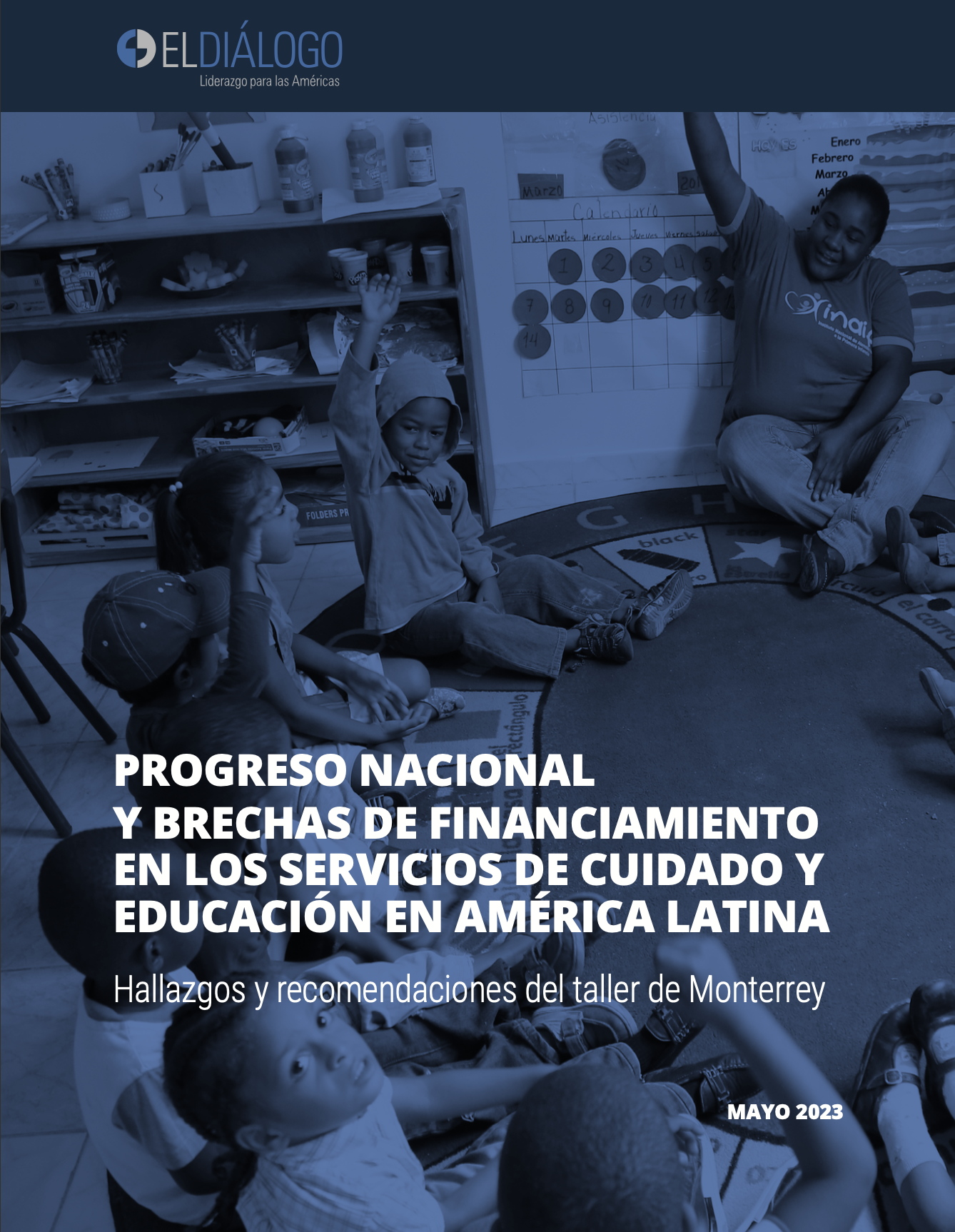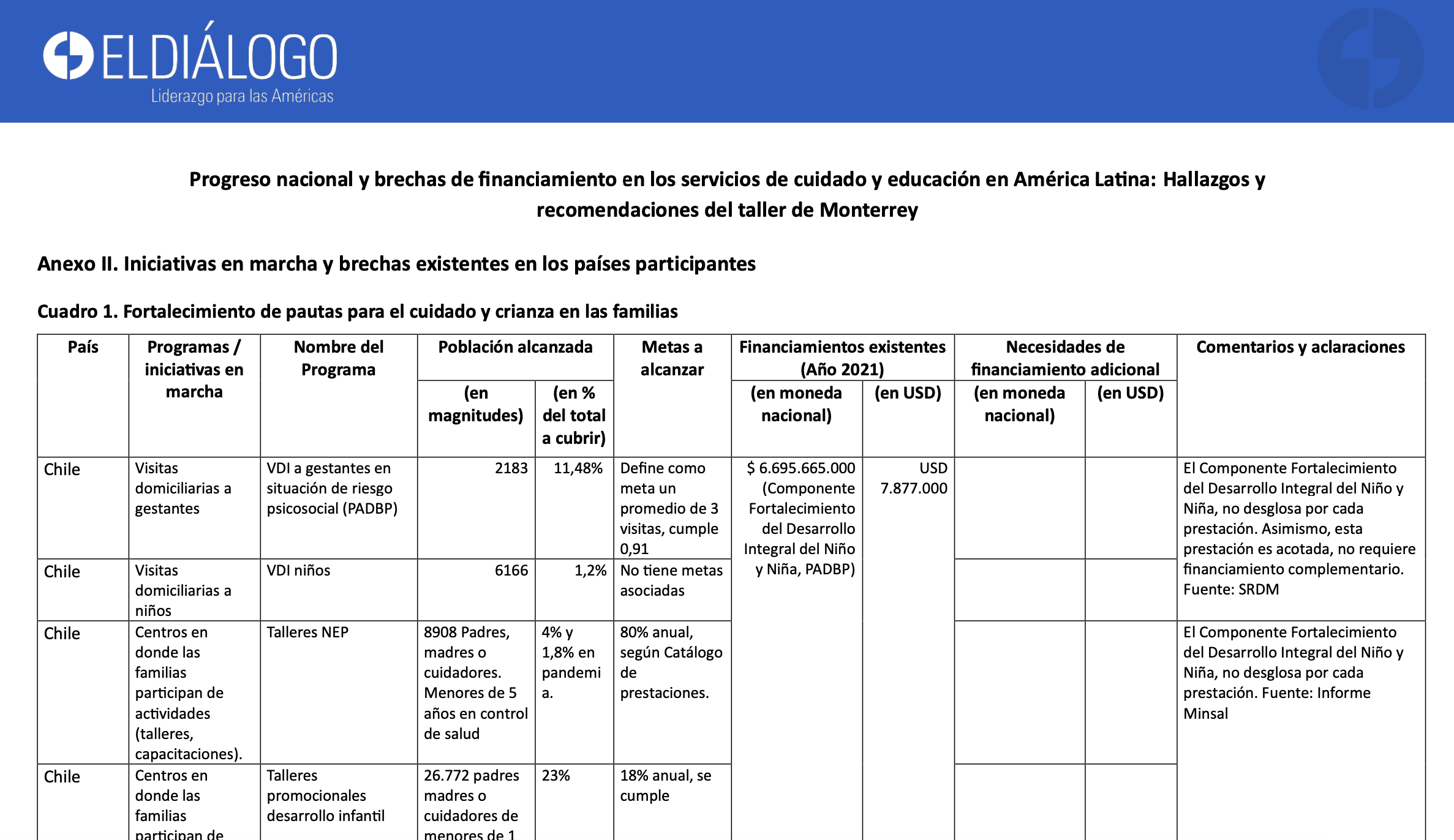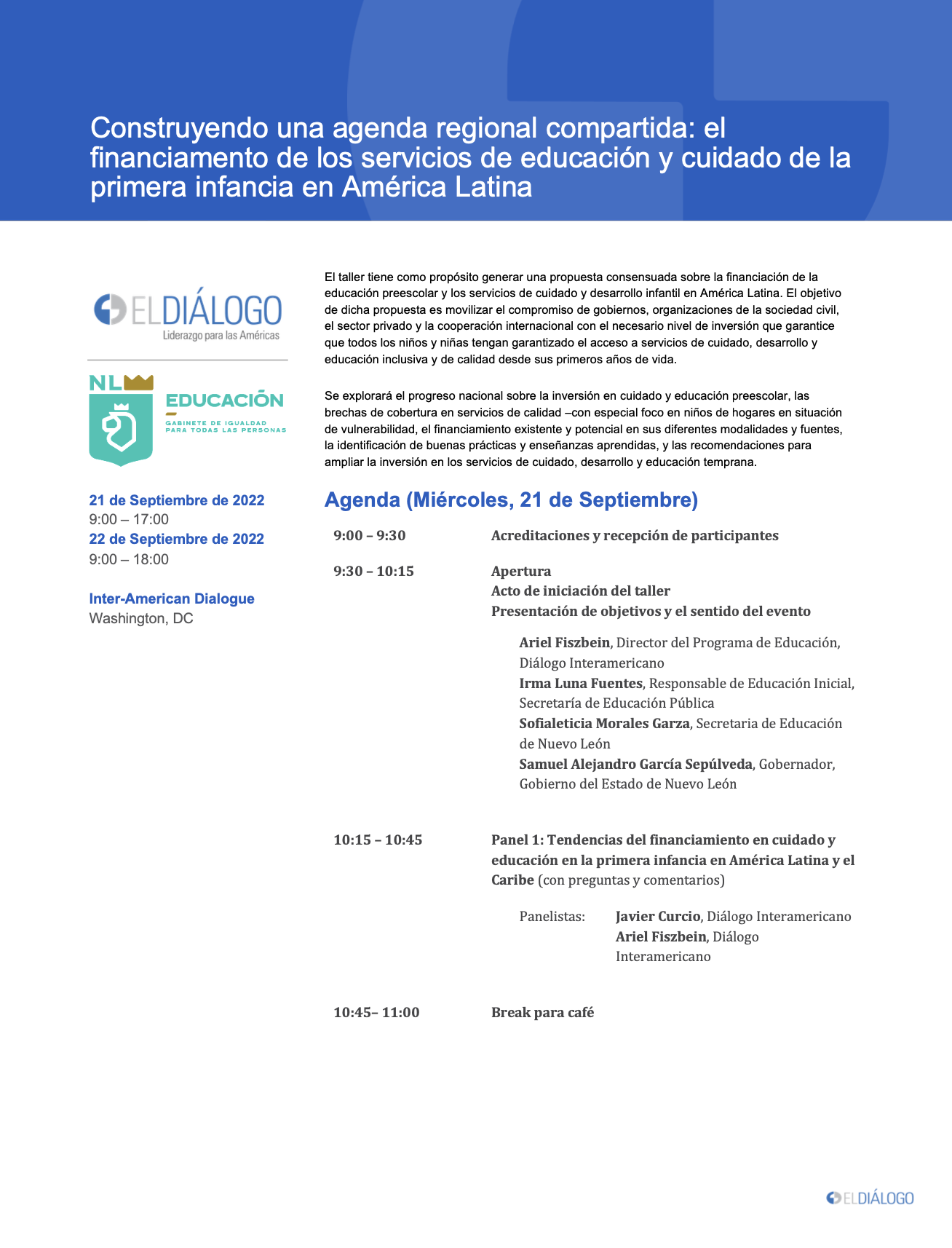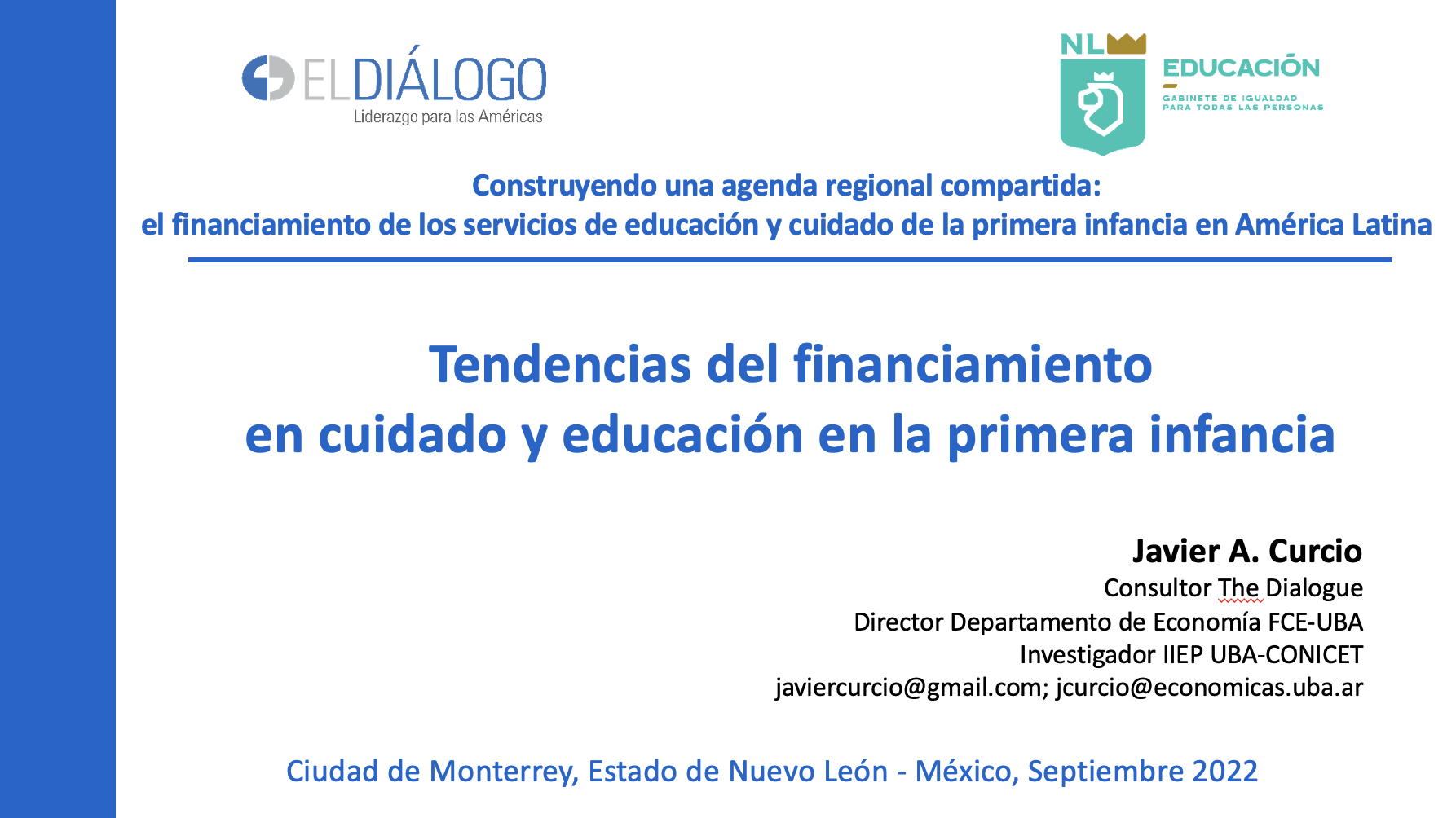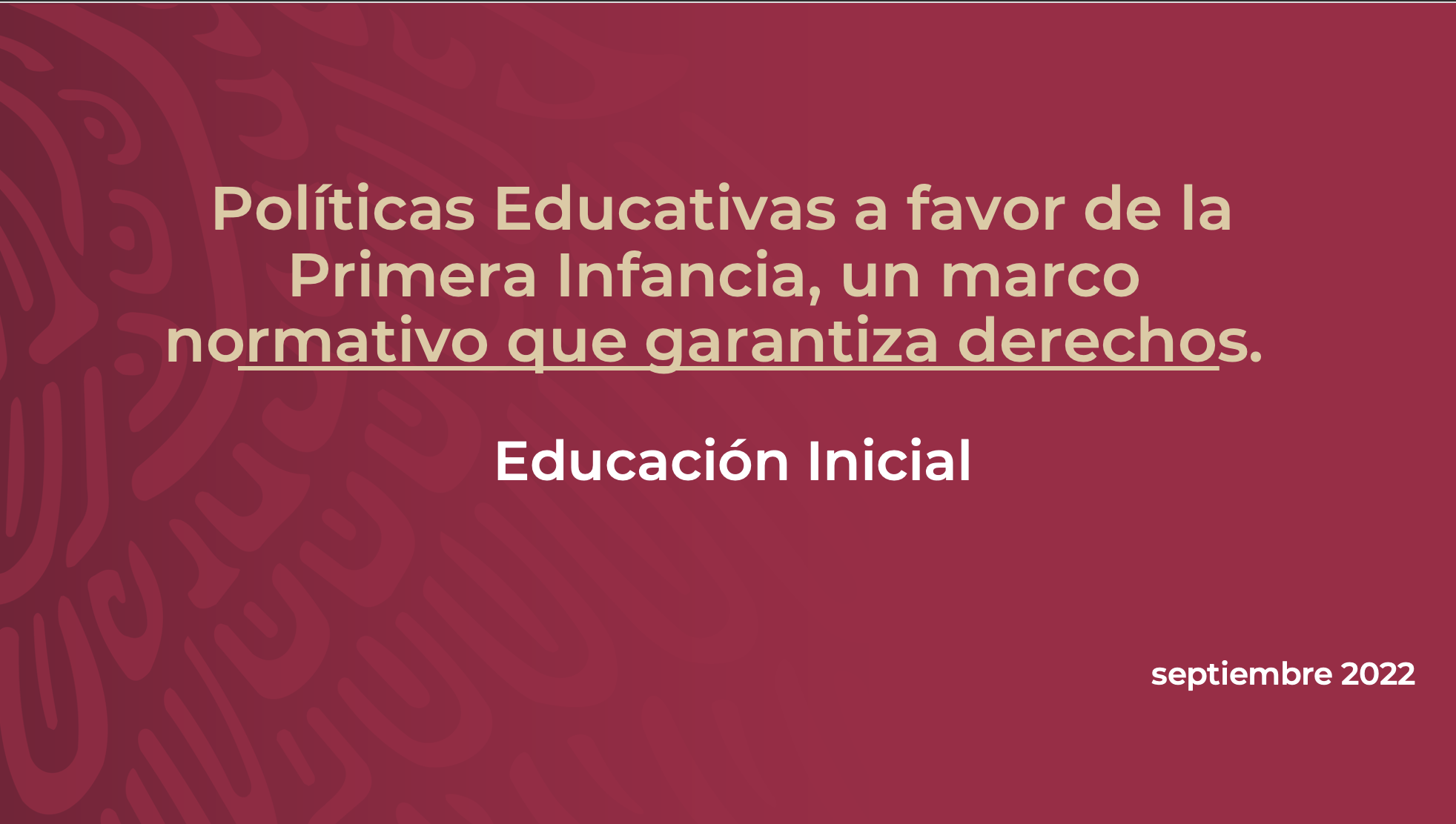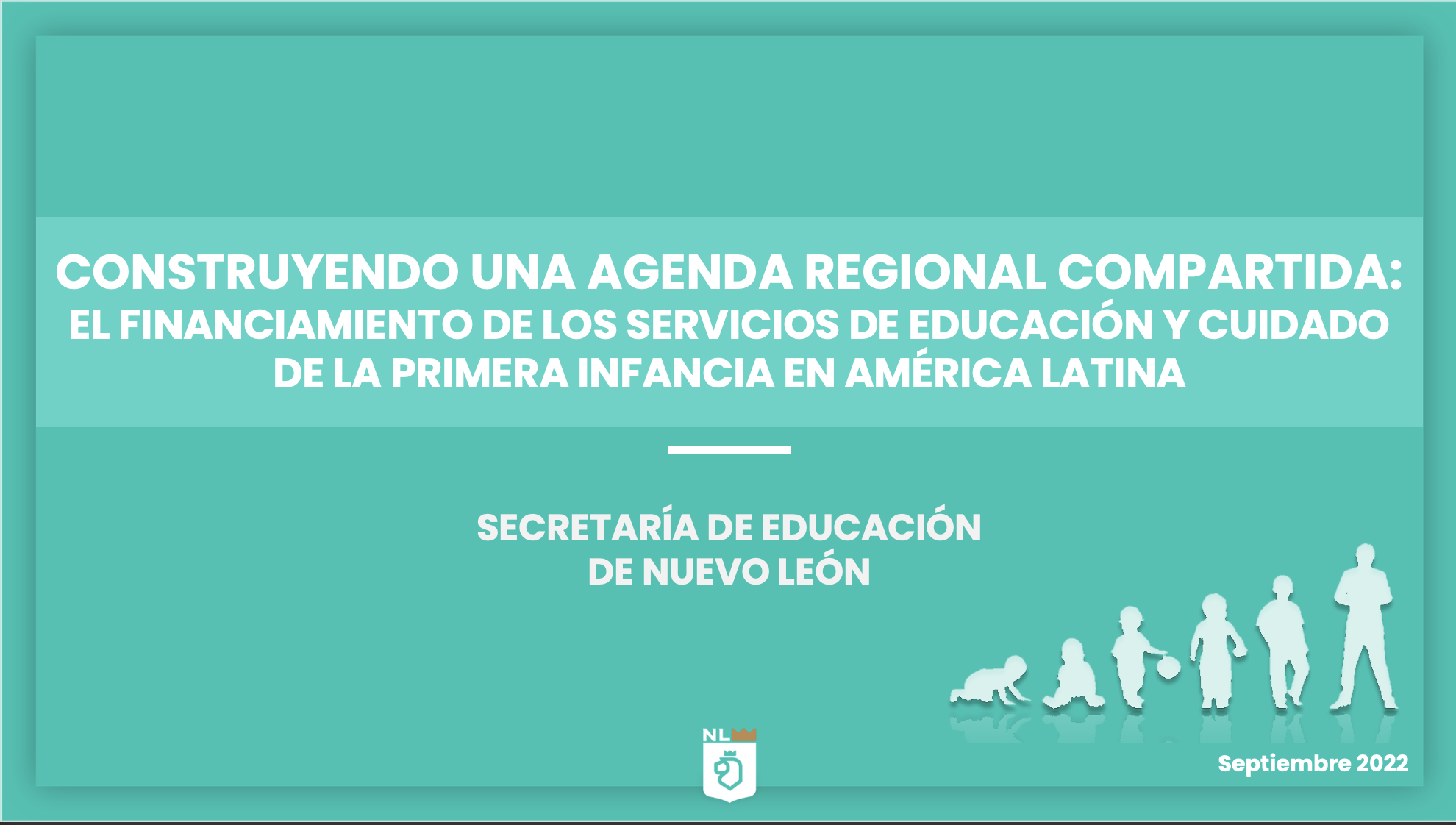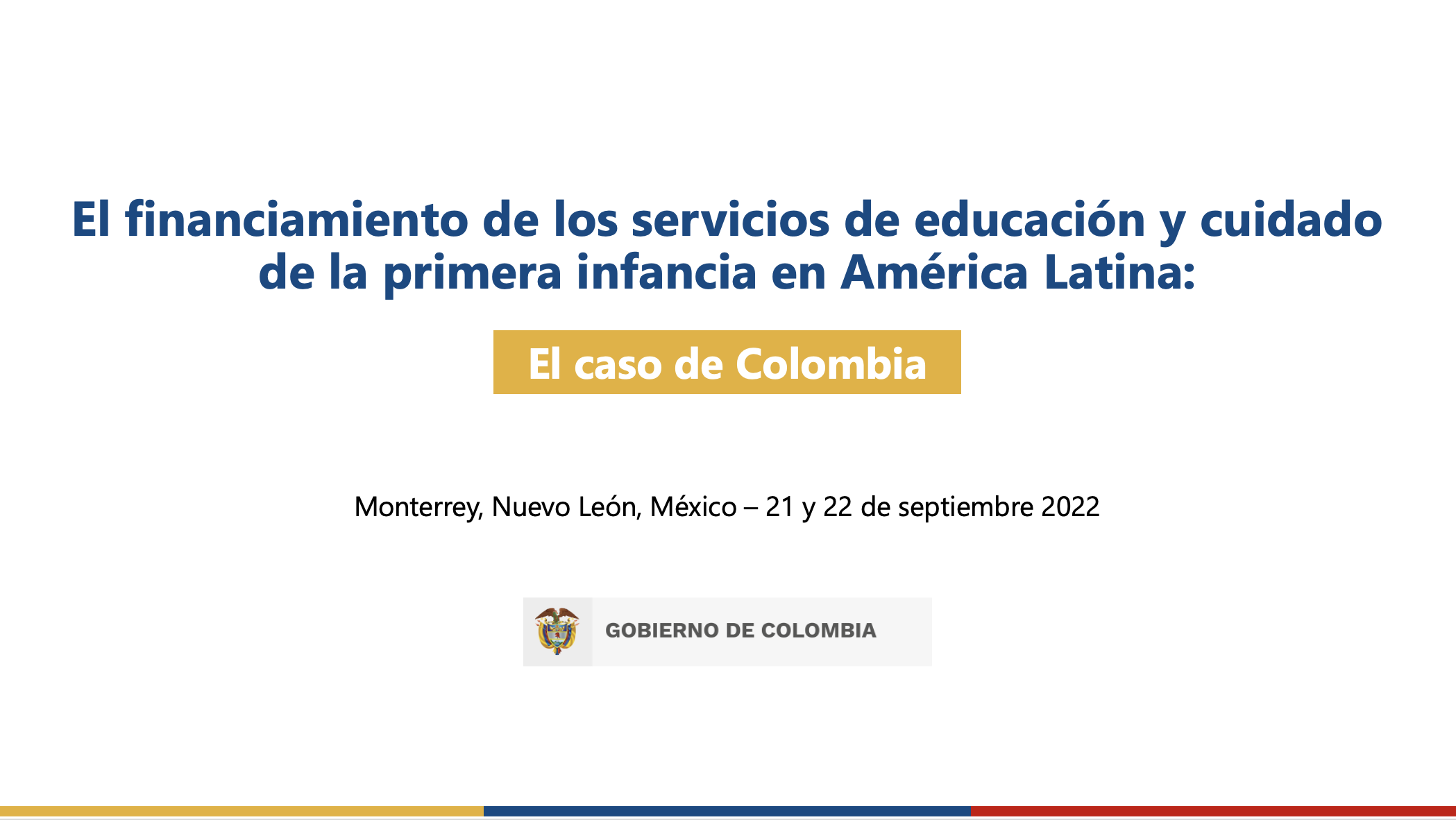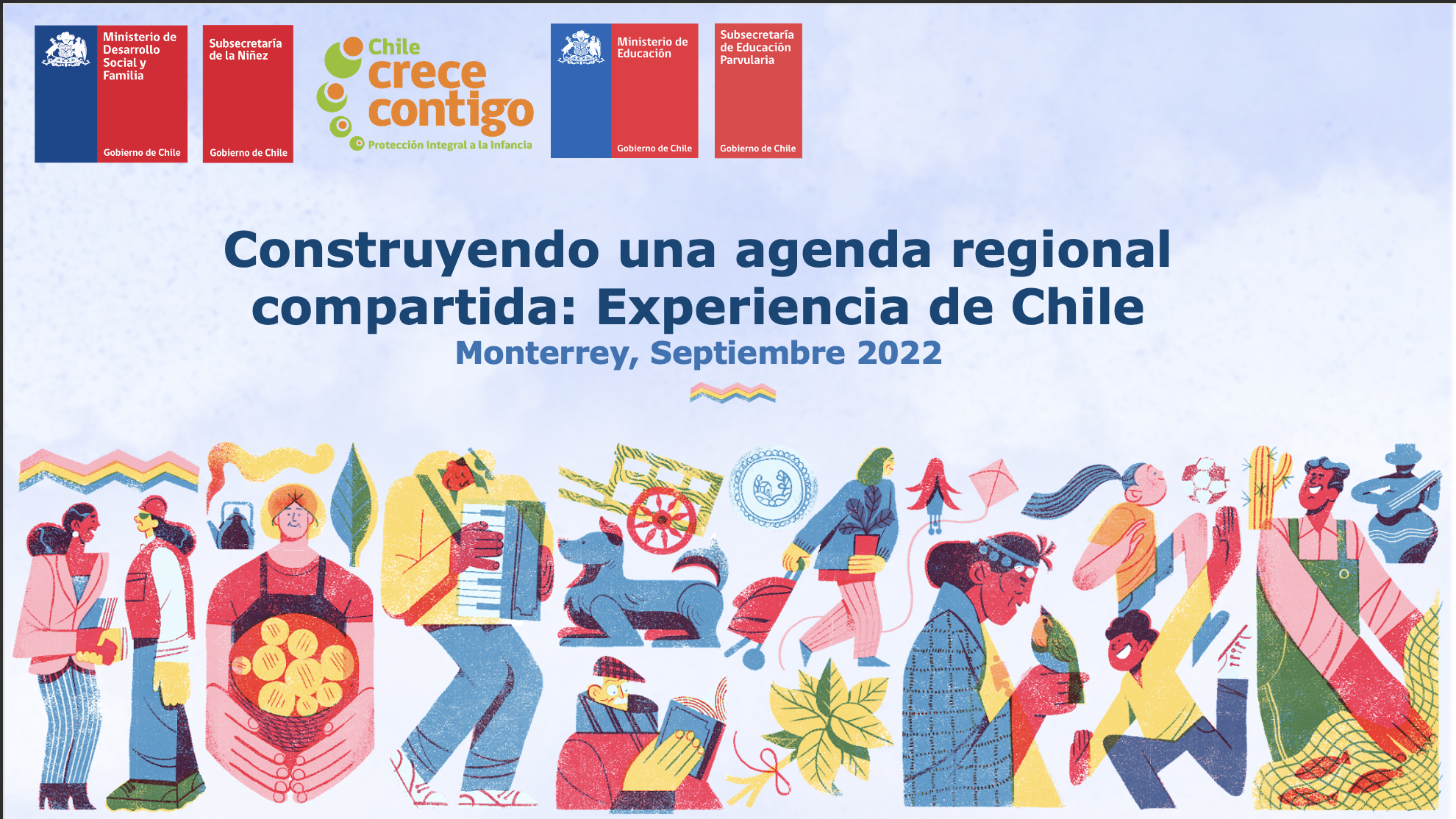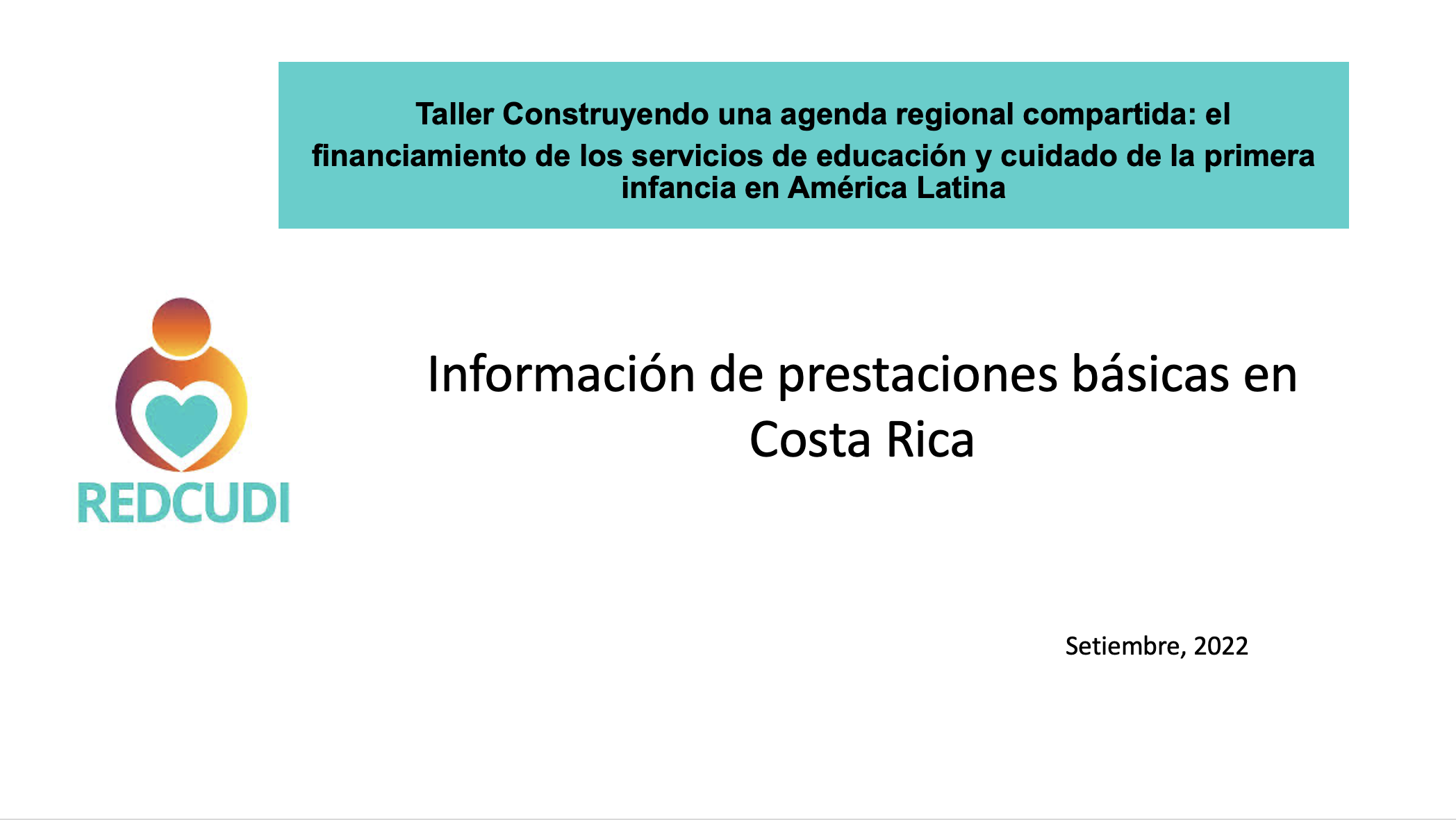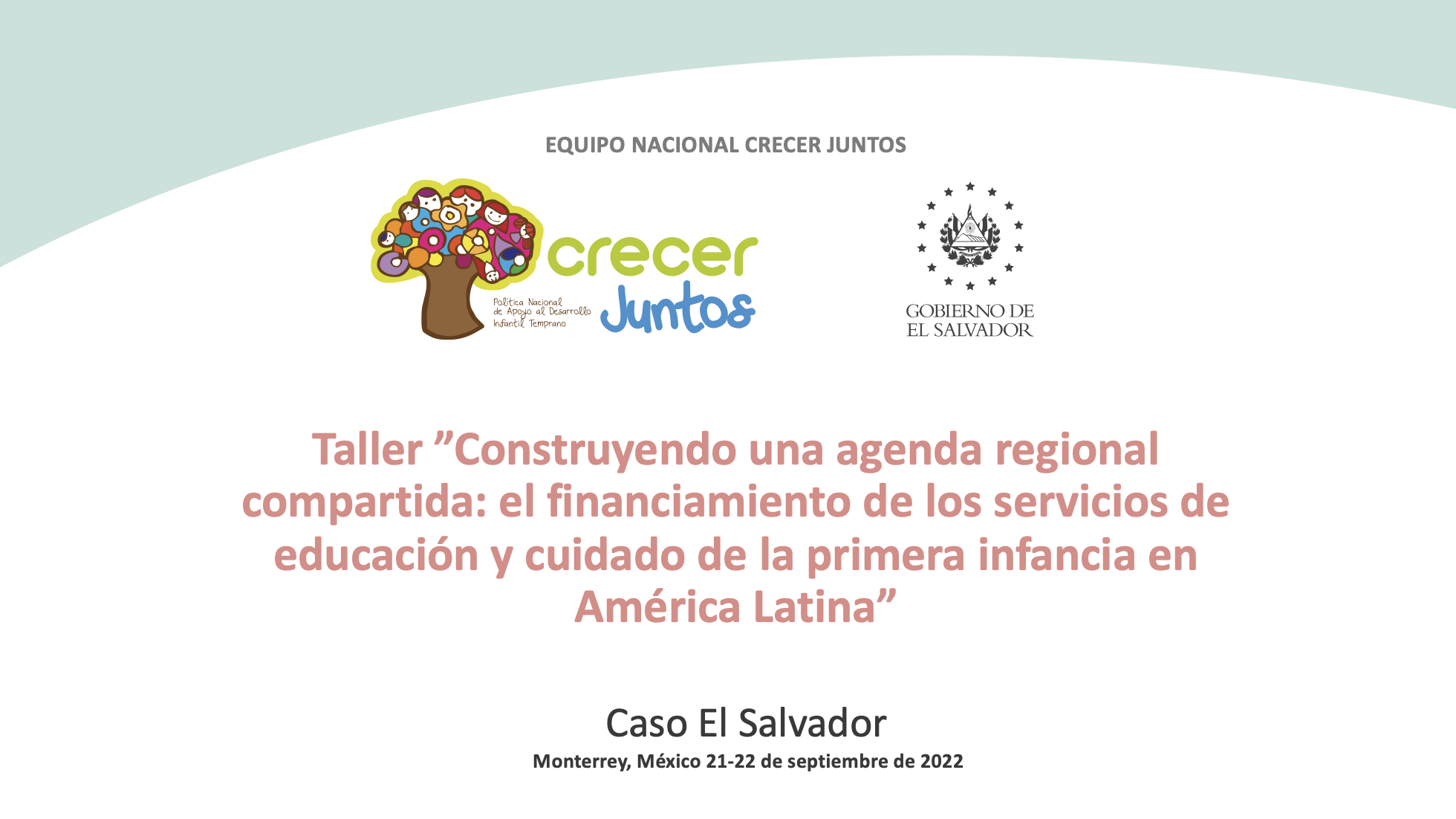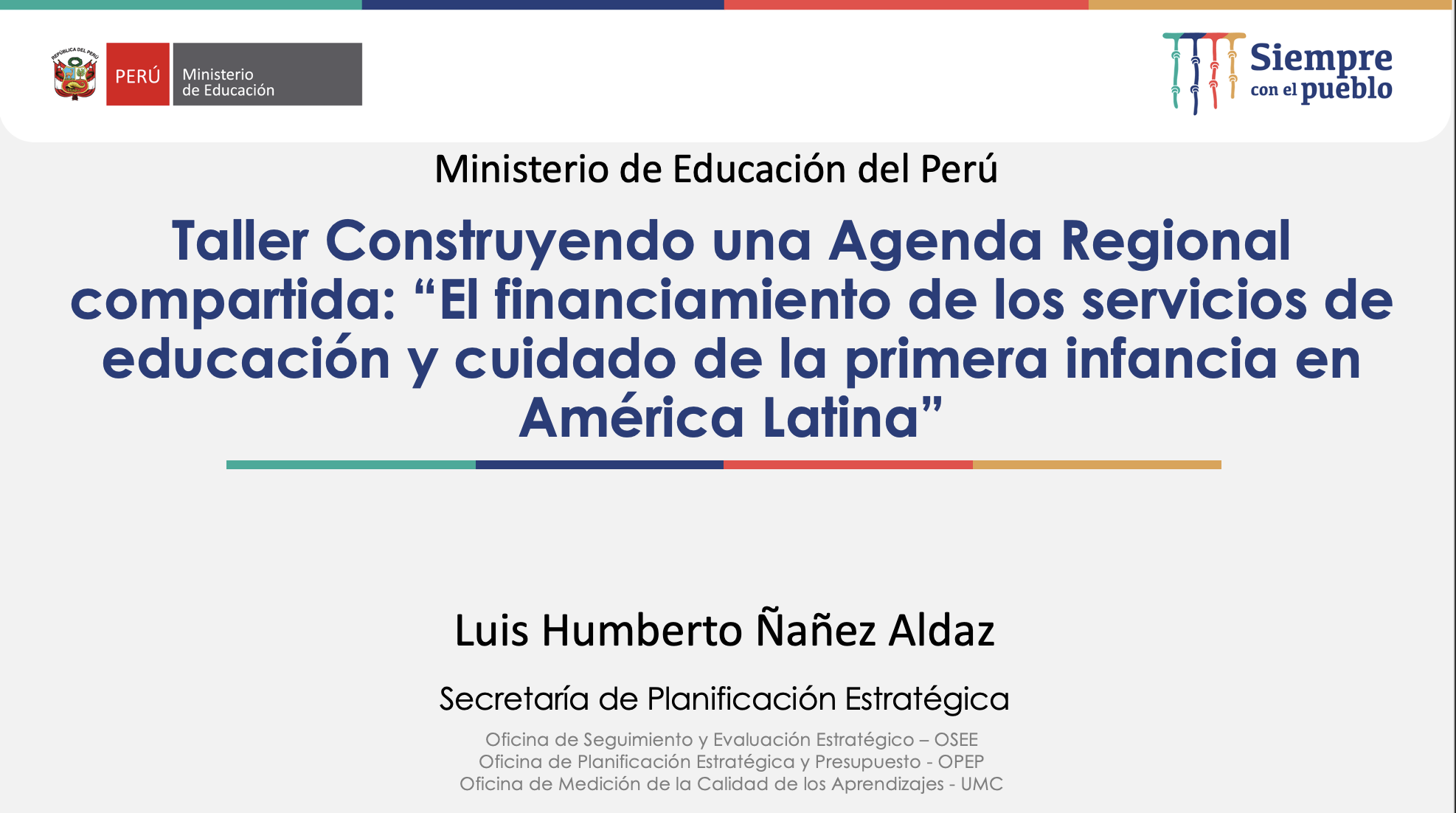Multi-Sector Collaboration and Financing
This post is also available in: Spanish
Building a Shared Regional Agenda: The Financing of Early Childhood Education and Care Services in Latin America
Introduction
The workshop Building a shared regional agenda: financing early childhood education and care services in Latin America was held on September 21-22, 2022 in the city of Monterrey, State of Nuevo Leon, Mexico. The purpose of the event was to generate a consensus proposal on the financing of preschool education and early childhood care and development services in Latin America.
The workshop was attended by representatives from several Latin American nations and the main objective of the proposal was to mobilize governments, civil society organizations, the private sector and international cooperation to establish a shared and adequate level of investment to guarantee access to inclusive and quality care, development and education services for all children from the earliest years of life.
Background and objectives of the workshop
The Declaration of the Regional Agenda Forum for the Comprehensive Development of Early Childhood signed in Colombia during the month of November 2017 by representatives of different governments of the Latin American region, representatives of civil society organizations and cooperation agencies, recognizes that “early childhood care is a priority issue in the political and social agenda of the Latin American and Caribbean States, because investing in this fundamental period of life contributes to guaranteeing the rights of children, to the formation of human capital, and to generating conditions for the construction of fairer, more equitable and inclusive societies in the region.”
Agreement 1 of the Declaration includes a commitment on the part of the signatories to “Consolidate national policies or plans that adopt a vision of children as subjects of rights and their integral development as a purpose. These policies or plans should be binding for the various entities and agencies involved and should be backed by sustainable investments in the medium and long term. At the same time, composite schemes for financing and budgeting of services should be strengthened. To this end, it is necessary to adopt measurement schemes that make it possible to know how much is being invested and what the investment should be from a comprehensive care perspective. The allocation of resources among programs and initiatives should be made to generate the greatest impacts on child development.”
Under the promotion of the Inter-American Dialogue, among other institutions, during the month of September 2019, the Workshop “Child development in Latin America: Basic package of universal benefits for early childhood” was held in the city of Montevideo, with the objective of facilitating a process of construction of basic universal benefit packages for the comprehensive development of early childhood in Latin America, leading to the definition of care goals and their costing. This was based on the experience of the governments of the region that have had leadership and significant experience in this area.
On the basis of a previously agreed methodology and the corresponding exchange of experiences, the Latin American countries participating in the Workshop – Argentina, Colombia, Chile, El Salvador, Peru, Dominican Republic and Uruguay – defined a “basic package of benefits” that can be adapted to the characteristics of each country, while at the same time establishing a regional model to guide the countries’ path. The definition, in this context, of goals and financing alternatives within the framework of this package also makes it possible to make the countries’ progress towards the effective implementation of the benefits involved feasible.
The proposal developed comprises three defined age groups: the prenatal stage, which runs from before conception to the moment of birth, including neonatal checkups; the second stage, which encompasses the first 1000 days of children’s lives, from the moment of birth to the age of 3; and the last stage of early childhood, which runs from the age of 3 to the age of 6. In the three stages, the package comprises benefits classified in the dimensions: I. Health and nutrition; II. Care and education services; and III. Protection and social inclusion, describing in each case the benefits and/or services involved and the corresponding clarifications.
In turn, the selection of the benefits corresponding to each stage and dimension was based on the recommendations drawn from the different experiences analyzed. In summary, we sought to ensure that the initiatives incorporated: i) comply with the comprehensive objectives of care, while at the same time providing a simple framework so that implementation at scale is feasible not only in terms of costs, but also in terms of institutional capacity (design, implementation, monitoring and follow-up, evaluation, etc.); ii) arise from the available scientific evidence on the relevance, effectiveness and sustainability of the program, as well as its impact on the quality of care. ); ii) arise from the available scientific evidence on the relevance, effectiveness and sustainability of the services at each stage of child development; iii) its implementation design is based on a prior analysis of the institutional capacities installed in the countries and their corresponding gaps; and iv) the process includes a costing exercise of the package with minimum quality levels that ensure its sustainability and effective compliance.
In this context and focusing on dimension “II. Care and education services”, which includes responses in terms of parental support, strengthening of child-rearing practices, child care and development spaces for early childhood and preschool education, the purpose of the workshop is to generate a consensus proposal on the financing of preschool education and child care and development services in Latin America. The objective of this proposal is to mobilize the commitment of governments, civil society organizations, the private sector and international cooperation with the necessary level of investment to ensure that all children have guaranteed access to inclusive and quality care, development and education services from their first years of life.




















